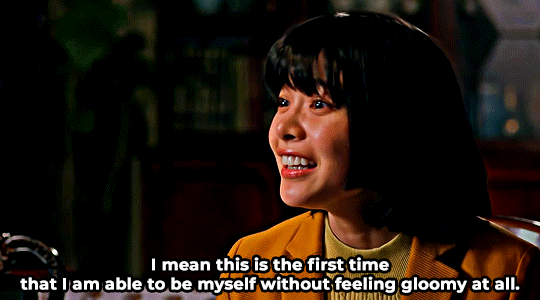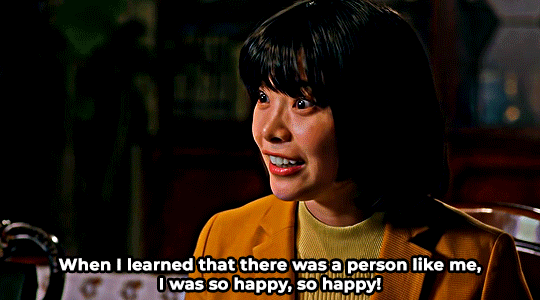Entry tags:
Koisenu Futari: A Primer

Plot: When her mother keeps pressuring her to marry, an unwilling Sakuko decides to move out of her family home. She ends up cohabiting with Satoru, another aromantic asexual. Together, both must confront the expectations, assumptions, and prejudices of Sakuko's environment and find a way to secure their own identity in a world that seems to challenge their concepts of family and happiness at every turn.
Definition: Aromantic Asexual / Ace-Aro
Ace-aro people experience neither sexual nor romantic attraction. It is a combination of two identities that can also exist separately. (1. Asexual = No sexual attraction, 2. Aromantic = No romantic attraction.) For an in-show explanation of the term ace-aro, please click here.
Status: Finished. One season of eight 30-minute episodes.
Before you start reading, please be aware:
- There is currently no legal way to watch this show with English subtitles.
- This primer includes several character quotes in order to illustrate basic concepts about the plot. If this is too spoilery for your liking, consider yourself warned.
Characters:
Sakuko: Discovers that she's an aromantic asexual.

Satoru: Out as aro-ace only to the readers of his online blog.

Kazu: Sakuko's ex-boyfriend. Shocked by her new living situation.

What makes the show special?
- A unique premise. I'm not aware of any other TV show that features two ace-aro main characters as its sole focus. It's a big deal for a story to make space for ace-aro people's stories considering the weight society usually puts on romantic and sexual relationships as a way to shape and classify the "human experience" of a person.
- Rare, explicit ace-aro representation. Sakoku and Satoru directly refer to themselves as aro-ace. There's no dancing around it, right from the start. Terminology is important when you never knew that there's an actual word for that thing that's always been different -- or "wrong", in some people's eyes -- about you. Representation matters, seeing your own life experience affirmed in other people matters, having a label (if you want one) matters, and the show captures this beautifully with Sakuko's excitement over meeting and connecting with somebody like her. I mean, just look at her sunny smile.


gifs by musicdramalove on Tumblr
- Validation of nontraditional relationships. Sakuko and Satoru, naturally, face questions and doubts about their cohabitation but, in the grand scheme of things, the overall message of the show is one of support and acceptance. They and their chosen bond are just as valid and important as those of other people with a different, more traditional understanding of interpersonal relationships.
YMMV, however, on how much (or how little) you'll be able to enjoy Sakuko and Satoru repeatedly having to educate the more judgmental, presumptuous people around them. Personally, I thought it was realistic and served a narrative purpose, but you might view it differently, especially if you're an aro-ace community insider and already well-acquainted with the concepts.
- Self-discovery and self-acceptance. Sakuko is a bubbly extrovert, right at the start of her coming-out experience, and still trying to make sense of herself. Satoru, meanwhile, has known for a long time what and who he is. As a result, he's grown cynical and alienated. Despite their many differences in personality and outlook, Sakuko and Satoru manage to complement each other quite nicely, find ways out of their respective shells, and thereby take important steps towards navigating different concepts of family and belonging that bring them closer to happiness.
This show might be for you if...
...you are a sucker for families of choice, friendships, and bonding over shared meals.
...you enjoy a soothing slice-of-life series with profound insights into different concepts of happiness, and flawed characters demonstrating genuine growth.
...you can understand and/or identify with Sakuko's conflict, pleasing her family to avoid loneliness vs. betraying an intrinsic part of herself and thereby risking being forever misunderstood.
...you consider Satoru's "Don't push your idea of normal onto me!" to be a big mood.

! Warning: This show features non-explicit sexual and romantic encounters that left the protagonists uncomfortable in the past.
It is not a this-trauma-turned-me-ace/aro situation but if you are sensitive about such content, please take care. !
It is not a this-trauma-turned-me-ace/aro situation but if you are sensitive about such content, please take care. !
Additional links:
A more comprehensive, thoughtful, and spoilery review of the series by shuubah on Wordpress.
